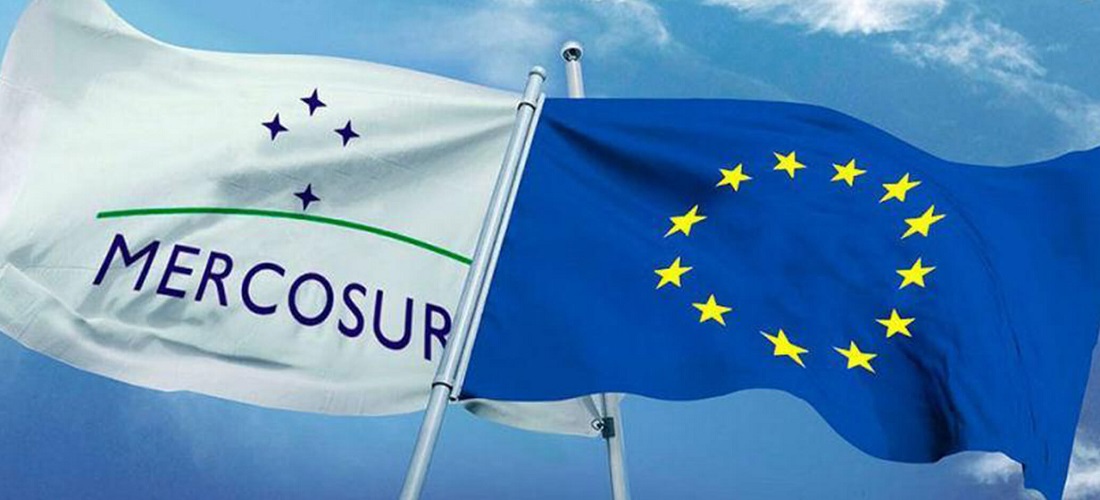
Brazil sees lost ‘window of opportunity’ in closing Mercosur-EU trade agreement
Mar, 04, 2024 Posted by Gabriel MalheirosWeek 202409
After a period of great optimism, the Brazilian government has essentially thrown in the towel regarding the trade agreement between Mercosur and the European Union. January and February were seen by the Brazilian Ministry of Foreign Affairs as the prime “window of opportunity” for signing the treaty, which ultimately did not occur. With the onset of March and the beginning of the European Parliament’s election calendar, the trend is that nothing further will progress this year.
Brazilian diplomats assess that even the President of the European Commission, the German Ursula von der Leyen, openly supportive of the agreement, is likely to set the agenda aside amid the electoral process. The prevailing view is that she will focus on her reelection, for which she will need, for example, France’s votes, a staunch opponent of the Mercosur agreement.
The realization by Brazilian negotiators is not new to other bloc members. Argentina’s Foreign Minister, Diana Mondino, indicated last week that “different opinions” practically made the trade agreement unfeasible. “The situation of seeking something optimal and that makes everyone happy, I don’t know if it will be possible, and maybe we will have to split the comprehensive agreement into several little pieces,” said Chancellor Javier Milei.
Mondino made the statements during the visit of French Foreign Minister Stéphane Séjourné to Buenos Aires, on the eve of the G20 meeting in Rio. “We respect the position of the European Union and regret that they do not see the enormous potential it would have for both parties. Argentina and the other Mercosur countries will continue to work as a bloc, perhaps with other geographic regions that are not the European Union,” she added.
Séjourné was even more emphatic in burying the agreement and suggested other types of partnerships, both in the economic and cultural fields. “The agreement, as it stands, will not pass. It is not satisfactory,” said the chancellor.
Weeks earlier, French President Emmanuel Macron had said that European negotiators were being instructed to inform their South American counterparts that the negotiations would be terminated. The statements were made amid protests by truck drivers and farmers across the country. French agricultural production is seen as the main “victim” of the Mercosur agreement, whose agricultural production is highly competitive.
At the time, the Brazilian Ministry of Foreign Affairs reacted by saying that Macron did not have the legitimacy or political strength to stop an agreement of such magnitude. The view now is that the French president “played politics” within the European bloc and ultimately managed to interfere in the negotiations. Nevertheless, the official discourse is that “negotiations continue.”
The peak of Brazilian optimism regarding the conclusion of the agreement came in the last months of last year. There was great expectation for an announcement even during the Brazilian presidency of Mercosur, which ended on December 7th. On the eve of the bloc’s summit in Rio, Ambassador Maria Luisa Escorel, Secretary for Europe and North America at the Brazilian Ministry of Foreign Affairs, said that the pending issues were “minimal.”
One of the fuels for this confidence was the demonstration of support by the new Argentine government. There was an expectation that Milei, then the president-elect, could pose new difficulties, given his history of criticisms and threats to withdraw the country from the South American bloc. Surprisingly, Mondino assumed Argentina’s foreign policy, supporting the agreement and the partnership with Brazil. She even made a sudden trip to Brasília to smooth out diplomatic wrinkles caused by Milei’s remarks.
During the same period, former President Luiz Inácio Lula da Silva appealed to Ursula von der Leyen, so that a final push for the signing could be given. The last sticking points were in the government procurement chapter, on the Mercosur side (especially Brazil), and requests for greater guarantees of agricultural production sustainability, on the European flank.
Fonte: Valor Econômico
Clique para ler a matéria original: https://valor.globo.com/brasil/noticia/2024/03/01/brasil-ve-janela-fechar-para-acordo-comercial-de-mercosul-e-ue.ghtml
-
Economy
May, 24, 2022
0
Brazilian trade balanced reached a surplus of US$ 523.8 million in the 3rd week of May
-
Shipping
May, 30, 2022
0
Putin says Russia is ready to facilitate grain shipments from Ukraine
-
Meat
Mar, 25, 2019
0
Kazakhstan approves imports of live cattle from Brazil
-
OTI Rankings
May, 12, 2023
0
OTI Ranking | DataLiner | Jan-Mar 2023 vs. Jan-Mar 2022 | Brazil and Plate


